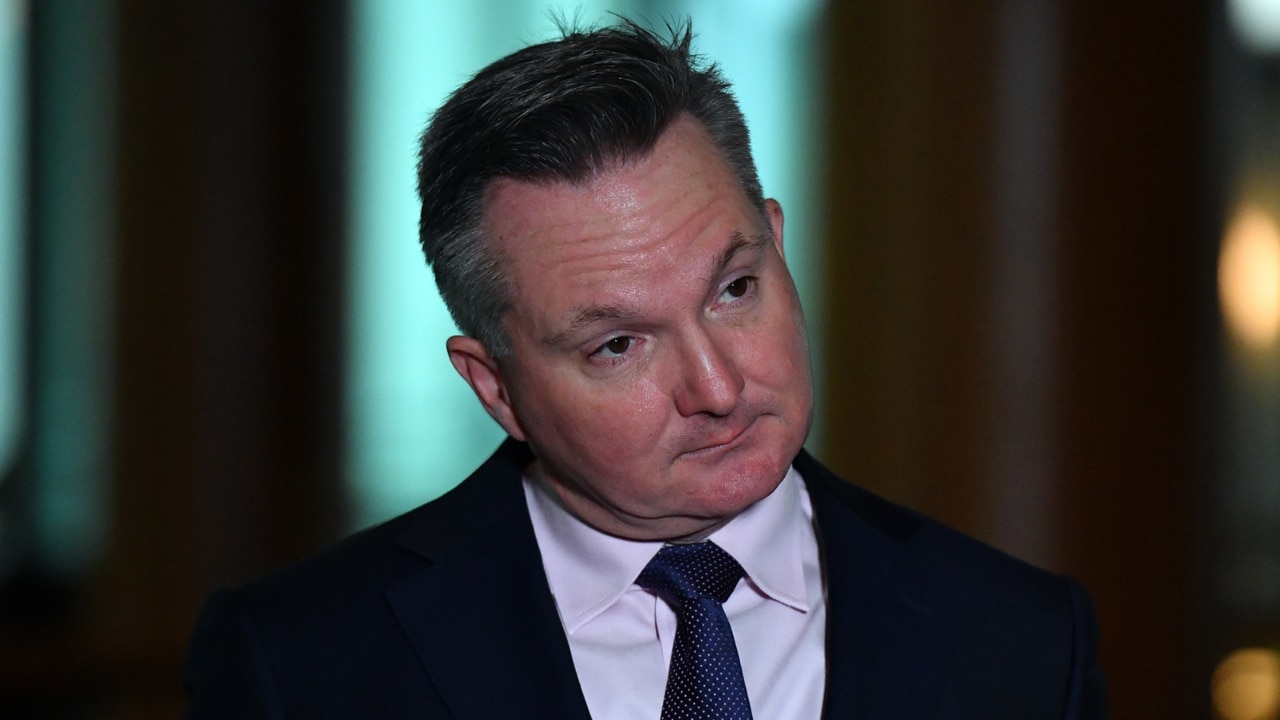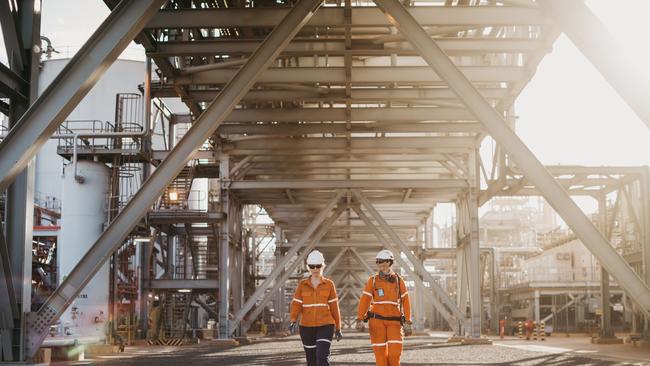Woodside sales drop as the energy giant offers few clues on Scarborough licences
The energy major is under pressure to secure approvals for its $16.5bn Scarborough project after reporting a 29 per cent drop in quarterly sales revenue.

Woodside posted a fall in quarterly sales revenue as analysts voiced concern that the oil and gas giant is yet to secure approvals for its $16.5bn Scarborough project.
The energy major reported revenue for the three months ended June 30 totalled US$3.08bn ($4.54bn), down 29 per cent from the previous quarter, when it posted income of $US4.33bn. Reported sales revenues were down 10 per cent from a year earlier, when the company posted income from sales of $US3.44bn.
The fall in revenues came as Woodside said the average price it received fell to US$63 a barrel, down from the US$85 per barrel the company earned in the three months ended March 30 and well down on the US$95 a barrel Woodside received one year earlier.
Woodside chief executive Meg O’Neill declared her satisfaction with the quarterly performance, particularly as the company completed scheduled maintenance work at its Pluto LNG plant, which drove the reduced production volumes.
“It was a pretty successful quarter. Production was down versus the first quarter and that was because of the major turnaround at Pluto,” Ms O’Neill told The Australian on Wednesday.
“I’m really proud of how well that work was executed. It was executed on schedule. Those are important activities to ensure the reliability of the plants for the years to come.”
Woodside’s result had largely been anticipated by the market, with its shares closing 1.4 per cent to $36.05 in a higher market.
But Citigroup analyst James Byrne said he was concerned that Woodside had yet to secure approvals for its $16.5bn Scarborough project
“Whilst the WA state regulator has approved the Scarborough trunkline in state waters, the four secondary approvals with NOPSEMA are yet to be granted,” he said.
“As per the [final investment decision] presentation to markets, drilling is meant to be starting imminently. However, if secondary approvals are not granted by October, we are worried about schedule slippage and therefore capex creep too.”

Woodside said the project is 38 per cent complete, and Ms O’Neil said the company has held constructive talks with NOPSEMA though she declined to comment on when licences could be awarded.
“We feel like we’ve got a good understanding of the expectations and what’s required, and we remain committed to first LNG from the Scarborough development in 2026,” Ms O’Neill said.
“I don’t intend to comment on interim milestones such as commencement of drilling.”
Scarborough is one of Woodside’s key growth projects as it looks to capitalise on demand following Russia’s invasion of Ukraine, which saw the world move away from cheap supplies from Moscow.
In June, Woodside said it had decided to proceed with the $US7.2bn deep water oil project in the Gulf of Mexico, which it expects to begin production in 2028.
The expansion has intensified criticism of Woodside from environmentalists, but Ms O’Neill said the world must have access to fossil fuels as the transition to renewable energy matures.
Woodside has also faced additional local pressure when the Albanese government introduced its mandatory code of conduct that included a $12 cap on new gas supplies.
Woodside was a vocal critic of the code, but Ms O’Neill said recent government provisions have eased the company’s concern.
“Any sort of market intervention is a bit disappointing. That says the final version of the code of conduct we think is workable.”



